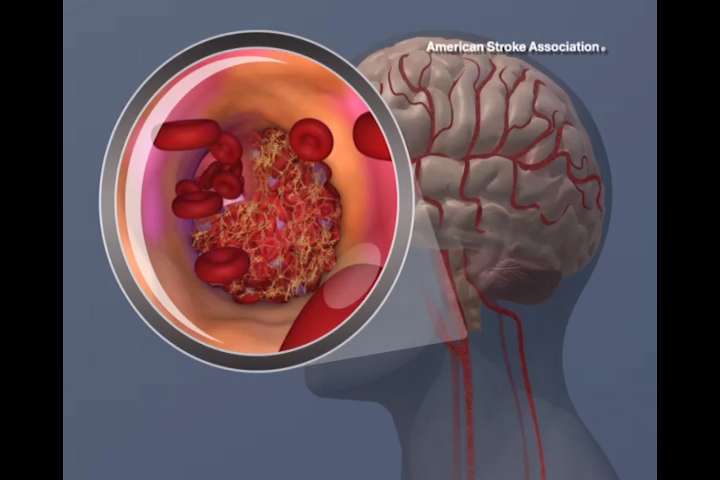Greater burden of atrial fibrillation linked to higher stroke risk

Among people with intermittently recurring atrial fibrillation who are not taking anti-blood-clotting medications, those whose hearts were in abnormal rhythms longer were three times more likely to have strokes or other types of blood clots than those who had abnormal heart rhythms for less time, according to a new Kaiser Permanente study.
Continuous heart monitoring may help physicians identify patients at higher risk and tailor treatments, according to the study published today in JAMA Cardiology.
"In our study, in people with the greatest burden of intermittently recurring atrial fibrillation those with the greatest burden defined as more than 11 percent of the time—were the most likely to experience subsequent strokes or arterial blood clots, even after we controlled for all other important risk factors," said lead author Alan S. Go, MD, director of the Comprehensive Clinical Research Unit within the Kaiser Permanente Division of Research.
Both types of atrial fibrillation—intermittently recurring and that which occurs 100 percent of the time—can produce irregular and fast heartbeats, or arrhythmias. They affect millions of adults in the United States, and are linked to a higher risk of ischemic strokes and other types of blood clots. Currently, patients with any amount of atrial fibrillation are treated the same as those with chronic atrial fibrillation when it comes to stroke prevention, but whether these groups have an equal risk of strokes and blood clots has been controversial, explained Dr. Go.
The Kaiser Permanente Real-World Heart Monitoring Strategy Evaluation, Treatment Patterns, and Health Metrics in Atrial Fibrillation (known as KP-RHYTHM) study used a non-invasive, continuous electrocardiographic device to gather data on the amount of time people spent in the arrhythmias. Approved by the Food and Drug Administration, the monitoring device is a lightweight patch that adheres to the upper left chest, recording and storing beat-to-beat information for up to two weeks.
The study analyzed heart rhythm data for 1, 965 adult members of Kaiser Permanente living in California with confirmed intermittently recurring atrial fibrillation and is among the largest to employ continuous, non-invasive heart monitoring. Participants wore the monitoring device continuously for up to 14 days between October 2011 and October 2016 and were not taking anti-blood clotting medications during that time.
Study participants were followed through November 2016 to identify those hospitalized for ischemic stroke or arterial blood clots (thromboembolism) while not taking anti-blood-clotting (anti-coagulation) medications such as warfarin or direct oral anticoagulants.
"This study has the potential to have a major impact on heart care," said senior author Matthew D. Solomon, MD, Ph.D., a cardiologist at Kaiser Permanente in Oakland, California, and adjunct researcher at the Division of Research. "Using new continuous heart-monitoring technology, physicians can identify patients with intermittently recurring atrial fibrillation at greater risk and engage in better-informed shared decision-making around stroke prevention strategies."


















